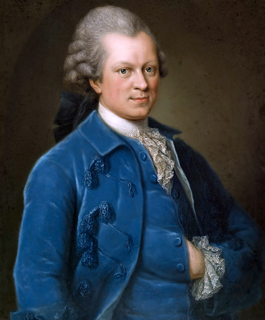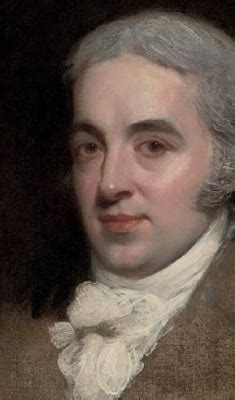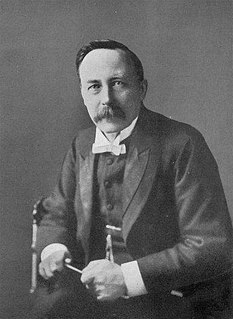A Quote by Gotthold Ephraim Lessing
The most agreeable of all companions is a simple, frank man, without any high pretensions to an oppressive greatness; one who loves life, and understands the use of it; obliging alike at all hours; above all, of a golden temper and steadfast as an anchor. For such an one we gladly exchange the greatest genius, the most brilliant wit, the profoundest thinker.
Related Quotes
The man who is anybody and who does anything is surely going to be criticized, vilified, and misunderstood. This is a part of the penalty for greatness, and every great man understands it; and understands, too, that it is no proof of greatness. The final proof of greatness lies in being able to endure contumely without resentment.
The earliest instinct of the child, and the ripest experience of age, unite in affirming simplicity to be the truest and profoundest part for man. Likewise this simplicity is so universal and all-containing as a rule for human life, that the subtlest bad man, and the purest good man, as well as the profoundest wise man, do all alike present it on that side which they socially turn to the inquisitive and unscrupulous world.
The art of being agreeable frequently miscarries through the ambition which accompanies it. Wit, learning, wisdom,--what can more effectually conduce to the profit and delight of society? Yet I am sensible that a man may be too invariably wise, learned, or witty to be agreeable; and I take the reason of this to be, that pleasure cannot be bestowed by the simple and unmixed exertion of any one faculty or accomplishment.
No one suffers so much as he [the genius] with the people, and, therefore, for the people, with whom he lives. For, in a certain sense, it is certainly only "by suffering" that a man knows. If compassion is not itself clear, abstractly conceivable or visibly symbolic knowledge, it is, at any rate, the strongest impulse for the acquisition of knowledge. It is only by suffering that the genius understands men. And the genius suffers most because he suffers with and in each and all; but he suffers most through his understanding. . . .
Every successful man or great genius has three particular qualities in common. The most conspicuous of these is that they all produce a prodigious amount of work. The second is that they never know fatigue. And the third is that their minds grow more brilliant as they grow older, instead of less brilliant. Great men's lives begin at forty, where the mediocre man's life ends. The genius remains an ever-flowing fountain of creative achievement until the very last breath he draws.
The greatest element in life is not what occupies most of its time, else sleep would stand high in the scale. Nor is it what engrosses most of its thought, else money would be very high. The two or three hours of worship and preaching weekly has perhaps been the greatest signal influence on English life. Half an hour of prayer, morning or evening, every day, may be a greater element in shaping our course than all our conduct and all our thought.
The man [who] is greatest and most blessed and joyful [is one] whose life most closely approaches the pattern of Christ. This has nothing to do with earthly wealth, power, or prestige. The only true test of greatness, blessedness, joyfulness is how close can a life come to being like the Master, Jesus Christ. He is the right way, the full truth, and the abundant life.
Most agreeable are the memories of events and labours, connected with the cruise:- of companions in travel, ... of coral islands with their groves, and beautiful life, above and below the waters, ... of lofty precipices, richly draped, even the sternest fronts made to smile and be glad, as delights the gay tropics, and alive with waterfalls, gliding, leaping, or plunging, on their way down from the giddy heights, and, as they go, playing out and in amid the foliage...
A man or a race either if he's any good can survive his past without even needing to escape from it and not because of the high quite often only too rhetorical rhetoric of humanity but for the simple indubitable practical reason of his future: that capacity to survive and absorb and endure and still be steadfast.




































